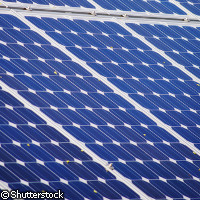Renewable energy industry sets out roadmap for 2020
Europe's renewable energy industries have launched a roadmap setting out how the EU could achieve its goal of meeting 20% of the union's energy needs with renewable energy sources by 2020. The 'Renewable Energy Technology Roadmap - 20% by 2020' was produced by the RESTMAC ('Creating markets for renewable energy technologies - an EU RES technology marketing campaign') project, which was funded to the tune of EUR 1,098,748 under the 'Sustainable development, global change and ecosystems' Thematic area of the Sixth Framework Programme (FP6). Europe's heads of government adopted a range of ambitious climate change and energy targets at their meeting in March 2007. In January 2008, the Commission put forward the Directive on the promotion of the use of energy from renewable energy resources. The proposed directive sets out the legislative framework needed to meet the targets. The renewable energy industries are optimistic that the targets can be met, as long as certain policy developments take place and all EU Member States invest in renewable energy technologies for the future. 'The development of all existing renewable energy sources and a balanced mix of the deployment in the sectors of heating and cooling, electricity and biofuels will guarantee the start of a real sustainable energy mix for Europe. The long-term stable framework is key for future development,' explained Christine Lins, Secretary-General of the European Renewable Energy Council (EREC), which coordinated the RESTMAC project. 'This is not only important to secure the energy supply of the European Union and to combat climate change but also to secure the leading role of the European renewable energy industry, which as of today employs more than 400,000 people in Europe and generates and annual turnover of EUR 40 billion. We believe that by 2020 the industry could grow to deliver 2 million jobs,' she added. The document sets out roadmaps for a range of renewable energy technologies, including bioenergy and solar thermal, photovoltaic, small hydropower, ocean and wind power energies. Among other things, the roadmap highlights the research needs in these key sectors. For example, in geothermal energy, innovative drilling technologies and technologies to exploit lower-temperature resources are needed. In biofuels, the challenge is to develop more efficient, lower-cost systems while improving the environmental performance of the technology. 'The most important R&D [research and development] objectives are further GHG [greenhouse gas] emission reduction whilst enhancing economic viability,' the document reads. In the photovoltaics (PV) sector, efforts are currently directed towards reducing the costs of the PV cells and increasing the lifetime of the modules, as well as the development of new, more efficient systems. 'The announcement of the [EU's energy and climate] goals in March 2007 by the heads of states and governments of the 27 EU Member States was a first and important step in recognising the need for a substantial shift towards a more sustainable energy system,' commented Professor Arthouros Zervos, President of EREC. 'Now it is high time to take the second step: implement the necessary legislation and tools to make the announced goals a reality and prove Europe's credibility and responsibility. The Renewable Energy Directive needs to be adopted as quickly as possible.'



